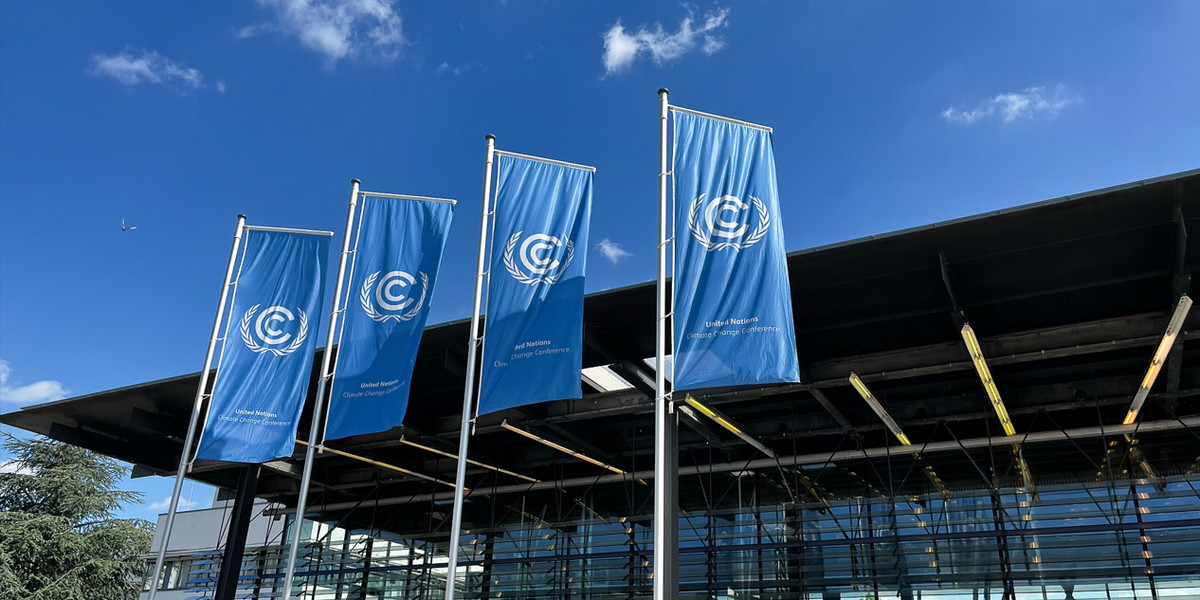Failure is not an option! UNFCCC Negotiators must act now on just and fair climate finance
A CIDSE delegation participated in the 60th UNFCCC Subsidiary Bodies sessions (SB 60) in Bonn from 3 to 13 June 2024. While the negotiating agenda covered a wide range of issues, the negotiations on the “New Collective Quantified Goal on Climate Finance” (NCQG) were of particular interest. Unfortunately, countries didn’t make enough progress towards laying a solid foundation for the NCQG. The outcome was a draft negotiation text having widely opposing positions and many loose ends to tie especially on climate finance and other topics and to be pushed farther down to COP29 in Azerbaijan later this year.
In addition, Parties need to make clear in 2024 how they intend to follow up on the Global Stocktake Outcome decisions taken at COP28, including on the ” transitioning away from fossil fuels ” and to collectively set a high level of expectations for the next round of NDCs, due early next year, in order to meet the 1.5°C goal of the Paris Agreement. Again, little progress was made on these important issues.
A welcome development was the agreement on a road map for the Sharm el-Sheikh Joint Work on the Implementation of Climate Action on Agriculture and Food Security agreed at COP27.
Read CIDSE’s reaction for more details.
Reactions from CIDSE delegates:
“Equity and justice should always be at the core of all climate negotiations! More than ever before, we have all the necessary information to act decisively and rapidly to stay below the 1.5°C threshold. For many years, ambition for climate finance stayed on the back burner, but it is high time real commitment and action is demonstrated by all in Baku, especially from rich countries.” Lydia Machaka, CIDSE
“Most countries didn’t even try to set the principal cornerstones of the new financial goal, like what kind of finance it will consist of, whether support for addressing losses and damages will be included or a guaranteed share for the most vulnerable states – let alone the actual volume of financial support in the coming years. It’s still a long way to COP29 for the collective goal and it requires the support of visionary politicians to prevent a hollow late-night deal in the overtime of COP29, which doesn’t serve the climate nor the people at the frontline of climate impacts.” Martin Krenn, KOO
“The SB 60 in Bonn has not shown a way forward of how to concretise the important “transitioning away from fossil fuels” decided in Dubai. This is a key success factor for COP29 and countries have to work hard to make this happen.” David Knecht, Fastenaktion
“The urgency to act on climate change impacts on agri-food systems has never been clearer, yet for more than a year Parties have been at odds on how to move this agenda forward. While belated, their agreement on a way forward in Bonn is welcome. This momentum must be maintained and translated into actions that support locally led adaptation, action that is based on responding to the needs and priorities of small-scale food producers, indigenous peoples and communities who are being most impacted by the climate crisis”. Michael O’Brien, Trócaire
“The main focus at COP29 will be on climate finance. We have to make sure that the commitment to financing climate action translates into ambitious NDCs.” Bettina Duerr, Fastenaktion
CIDSE contact: Lydia Machaka, Energy and Extractivism Officer (machaka(at)cidse.org)
Cover photo: World Convention Center in Bonn, Germany; Credit: Manolito Steffen, Fastenaktion

